 1996 Hyundai Coupe I (RD) Dimensions, Size & Specs
1996 Hyundai Coupe I (RD) Dimensions, Size & SpecsMeasurements of the 1996 Hyundai Coupe I, engineered for optimal performance and comfort
| Dimensions | |
|---|---|
| Length: | 4345 mm171.1 in14.3 ft |
| Width: | 1730 mm68.1 in5.7 ft |
| Height: | 1310 mm51.6 in4.3 ft |
| Trunk Capacity (Max): | 360-362 liter12.7-12.8 cu ft |
| Weight Specifications | |
| Curb Weight: | 1235-1250 kg2723-2756 lbs |
| Maximal permitted Weight: | 1600 kg3527 lbs |
| Tire Specifications | |
| Rims Sizes: |
|
| Tire Sizes: |
|
The Hyundai Coupe I (RD), produced from 1996 to 1999, represents Hyundai's entry into the compact sporty coupe market of the late 1990s. This first-generation Hyundai Coupe combines a sleek design with practical coupe dimensions, making it suitable for drivers looking for a stylish yet manageable vehicle. Measuring between 4340 and 4345 mm (approximately 170.9 to 171.1 inches) in length, it strikes a balance between compactness and cabin space. The vehicle's width stands at 1730 mm (68.1 inches), providing a stable and agile driving feel, while the relatively low height of 1310 mm (51.6 inches) accentuates its sport-oriented profile.
Weighing between 1235 and 1250 kg (2723 to 2756 lbs) in curb weight, the Hyundai Coupe I maintains a light footprint that contributes to responsive handling and performance efficiency. Its maximum weight capacity reaches up to 1600 kg (3527 lbs), allowing the coupe to carry passengers and cargo comfortably. Speaking of cargo, the luggage capacity offers practicality with between 360 and 362 liters (approximately 12.7 to 12.8 cubic feet) of space when the rear seats are folded down, accommodating typical daily needs and weekend getaways.
The coupe rides on rims sized 14, 15, and 16 inches, with tire options including 195/60 R14, 205/50 R15 86V, 205/50 R15, and 215/40 R16 H. These sizes underline the car's sporty character and give owners customization options for performance or comfort. Overall, the Hyundai Coupe I (RD) from the late '90s is a compact, lightweight coupe with agile dimensions, practical cargo space, and a design meant to appeal to enthusiasts and daily drivers alike.
Discover the standout features that make the 1996 Hyundai Coupe I a leader in its class
Have a question? Please check our knowledgebase first.
The Hyundai Coupe I (RD) measures approximately between 4340 mm to 4345 mm (about 170.9 to 171 inches) in length, while its width is consistently 1730 mm (around 68.1 inches). These dimensions place it comfortably in the compact coupe category, offering a sporty yet manageable size for urban and suburban driving.
The Hyundai Coupe I (RD) stands at 1310 mm high (approximately 51.6 inches). This relatively low profile height enhances the car's sporty aesthetic and contributes to improved aerodynamics, which can offer better stability and handling dynamics, especially at higher speeds, reinforcing its coupe sports car image.
The curb weight of the Hyundai Coupe I (RD) ranges between 1235 kg and 1250 kg (approximately 2723 to 2756 pounds). This moderate weight supports agile handling characteristics typical of lightweight sports coupes, while also allowing the vehicle to achieve reasonable fuel efficiency for its era by balancing power with mass.
The Hyundai Coupe I (RD) has a maximum weight capacity of 1600 kg (around 3527 pounds), which includes the combined weight of passengers, cargo, and the vehicle itself. This means it can safely carry additional load beyond its curb weight, accommodating passengers and luggage without compromising structural integrity or safety.
With the rear seats folded, the Hyundai Coupe I (RD) provides between 360 to 362 liters (approximately 12.7 to 12.8 cubic feet) of luggage capacity. This storage space, though limited compared to larger vehicles, is quite practical for a compact coupe, making it suitable for weekend trips or daily errands where moderate cargo space is needed.
The Coupe I (RD) comes with rim sizes of 14, 15, and 16 inches, fitted with various tire sizes such as 195/60 R14, 205/50 R15 86V, 205/50 R15, and 215/40 R16 H. These tire options provide a balance between ride comfort and sporty handling to suit different driving preferences and conditions.
Yes, the Hyundai Coupe I (RD) fits comfortably into a standard garage. Its length of approximately 4.34 meters (about 14.2 feet) and width of 1.73 meters (around 5.7 feet) are well within typical garage size standards, which often start around 6 meters (20 feet) in length and 3 meters (10 feet) in width. This makes parking and storing the vehicle at home convenient for most users.
The Hyundai Coupe I (RD) was the first generation of the Hyundai Coupe, so it did not have a direct predecessor model for comparison. As Hyundai’s initial foray into the coupe sports segment in the mid-1990s, it established a benchmark for compact sporty vehicles bearing the Hyundai badge, emphasizing stylish design and balanced proportions relative to competitors of its time.
Compared to contemporaries like the Honda Civic Coupe and Mazda MX-3, the Hyundai Coupe I (RD) offers competitive dimensions: its length of about 4.34 meters places it in line with typical compact coupes. Its luggage capacity of around 360 liters is modest but practical, slightly better than some sportier rivals that sacrificed storage for performance. Its curb weight is also fairly light, supporting nimble handling, making it a solid choice among late 1990s coupes for drivers seeking a balance between sporty style and everyday usability.
The Hyundai Coupe I (RD) was notable as Hyundai's bold entry into the sport compact market during the late 1990s. It distinguished itself with a sleek, low-profile coupe design measuring approximately 4.34 meters in length and a sporty stance emphasized by its 1310 mm height. With moderate weight and practical luggage space, it combined style with functionality. Its availability with multiple rim and tire sizes also allowed drivers to tailor the driving experience. During 1996-1999, it helped Hyundai expand their brand image beyond economy cars into sportier segments with a focus on affordability and youthful appeal.
Discover similar sized cars.
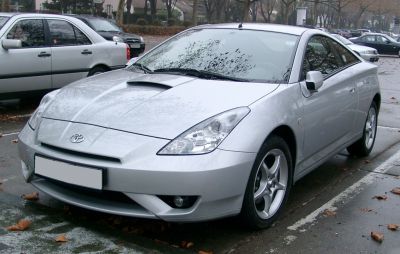
| Production: | 1999-2006 |
|---|---|
| Model Year: | 2000 |
| Length: | 4328-4335 mm170.4-170.7 in |
| Width: | 1735 mm68.3 in |
| Height: | 1305-1320 mm51.4-52.0 in |
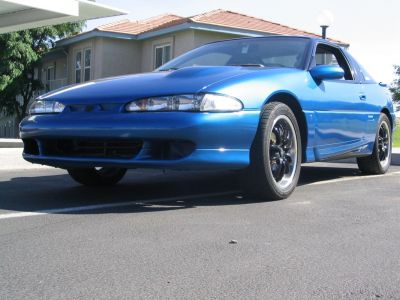
| Production: | 1992-1998 |
|---|---|
| Model Year: | 1990 |
| Length: | 4374 mm172.2 in |
| Width: | 1735 mm68.3 in |
| Height: | 1295 mm51.0 in |
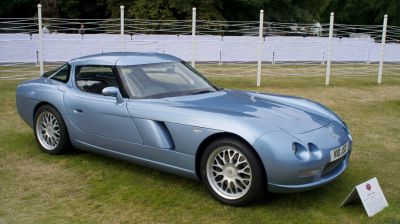
| Production: | 2004-2011 |
|---|---|
| Model Year: | 2004 |
| Length: | 4420 mm174.0 in |
| Width: | 1795 mm70.7 in |
| Height: | 1345 mm53.0 in |
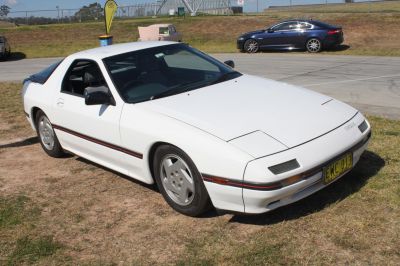
| Production: | 1985-1991 |
|---|---|
| Model Year: | 1986 |
| Length: | 4310 mm169.7 in |
| Width: | 1690 mm66.5 in |
| Height: | 1265 mm49.8 in |

| Production: | 1997-2001 |
|---|---|
| Model Year: | 1997 |
| Length: | 4345 mm171.1 in |
| Width: | 1730 mm68.1 in |
| Height: | 1310 mm51.6 in |
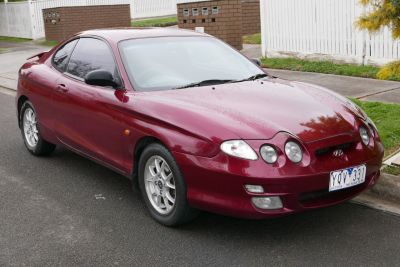
| Production: | 1999-2002 |
|---|---|
| Model Year: | 1999 |
| Length: | 4345 mm171.1 in |
| Width: | 1730 mm68.1 in |
| Height: | 1310 mm51.6 in |
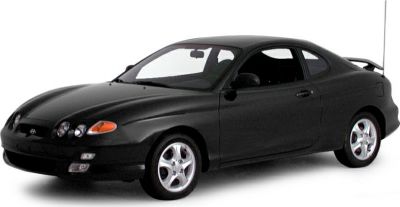
| Model Year: | 1998 |
|---|---|
| Length: | 4345 mm171.1 in |
| Width: | 1730 mm68.1 in |
| Height: | 1310 mm51.6 in |
